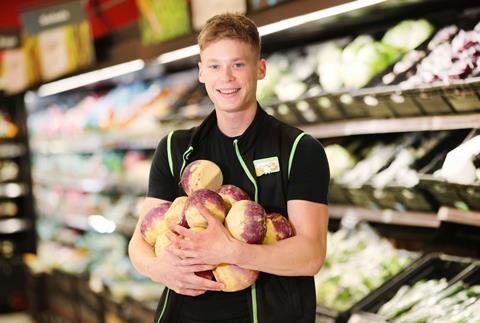The climate action group is calling on more businesses in the UK to take immediate action on climate change, including efforts on food waste and plastic packaging
Climate action NGO Wrap has published annual updates of its voluntary agreements for the food, plastics and textiles sectors, issuing an urgent call for increased collaboration and action to keep UK climate goals within reach.
Since the launch of its first voluntary agreement in 2005, Wrap argues that it has shown how a voluntary approach can deliver measurable outcomes, with the Courtauld Commitment reducing the UK’s food waste by 27 per cent since its launch 17 years ago.
However, given the failure to deliver on the scale and pace of change necessary to meet the goals of the voluntary agreements, Wrap is calling on more businesses to take immediate action on reducing their emissions.
Catherine David, director of collaboration and change at Wrap, commented: “COP27 made it clear that we are not on track to mitigate the worst impacts of the climate crisis. Accelerating action by businesses is paramount. The businesses signed up to our agreements are leading the way in transforming the food, textiles and plastic packaging sectors, demonstrating what is possible, and helping inform government’s thinking on needed regulatory levers. Today’s reports show the mountain we need to climb, and we call on all businesses to join us on this journey and be part of changing our consumption systems in line with a sustainable future.”

As the impacts of climate change increase, including on food security, Wrap argues that the Courtauld Commitment 2030 is more important than ever.
“Many businesses are working together to transform the food system, but the need for accelerated action has never been more urgent – not least around household food waste - and it is critical that the whole sector unites behind Courtauld 2030 and joins those leading the vanguard,” Wrap stated.
With household food waste returning to pre-pandemic levels, actions such as removing ‘Best Before’ dates and selling more fresh produce loose are essential, Wrap says.
An 18-month research project with Courtauld 2030 signatories and UK Plastics Pact members showed that selling fresh produce loose had a huge potential to reduce food waste and plastic waste in the home, it said.
Since 2018, the UK Plastics Pact has made good progress in removing problematic plastics and increasing recycled content, Wrap said, but urgent action is needed to reduce unnecessary plastics, and ensure the rest is recyclable and recycled.
Wrap also stressed the need for significantly higher levels of investment to support its water programme aimed at tripling the number of catchment projects by 2030.



